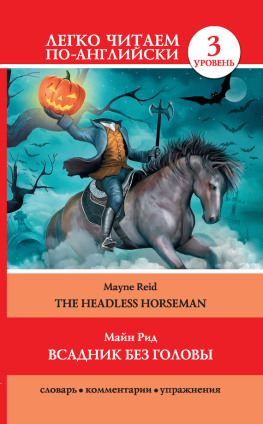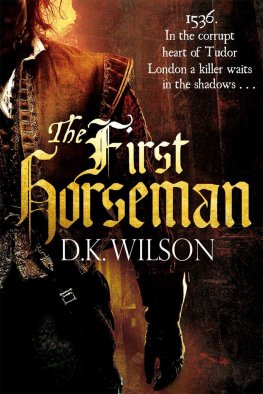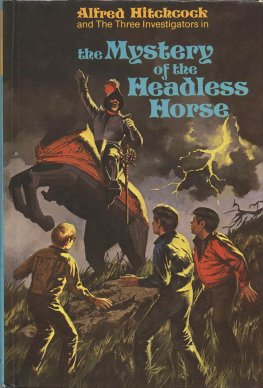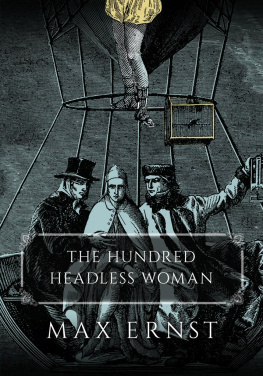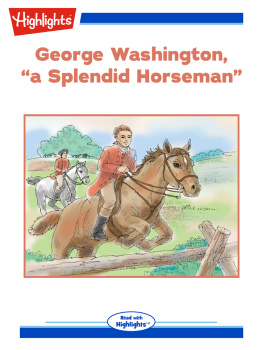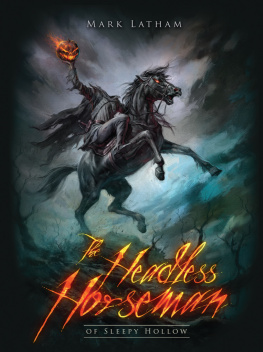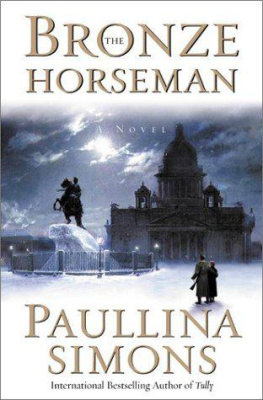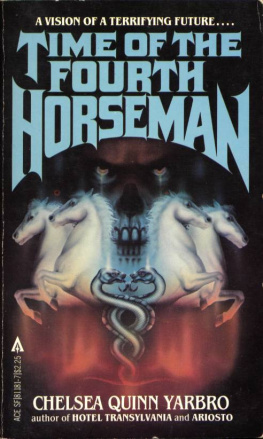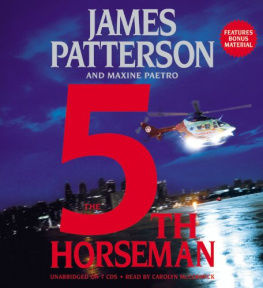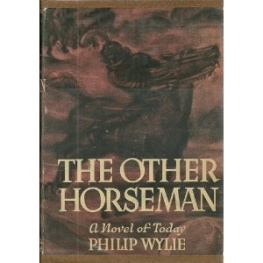Рид - Всадник без головы / The Headless Horseman
Here you can read online Рид - Всадник без головы / The Headless Horseman full text of the book (entire story) in english for free. Download pdf and epub, get meaning, cover and reviews about this ebook. year: 2022, publisher: АСТ, genre: Detective and thriller. Description of the work, (preface) as well as reviews are available. Best literature library LitArk.com created for fans of good reading and offers a wide selection of genres:
Romance novel
Science fiction
Adventure
Detective
Science
History
Home and family
Prose
Art
Politics
Computer
Non-fiction
Religion
Business
Children
Humor
Choose a favorite category and find really read worthwhile books. Enjoy immersion in the world of imagination, feel the emotions of the characters or learn something new for yourself, make an fascinating discovery.
- Book:Всадник без головы / The Headless Horseman
- Author:
- Publisher:АСТ
- Genre:
- Year:2022
- Rating:4 / 5
- Favourites:Add to favourites
- Your mark:
- 80
- 1
- 2
- 3
- 4
- 5
Всадник без головы / The Headless Horseman: summary, description and annotation
We offer to read an annotation, description, summary or preface (depends on what the author of the book "Всадник без головы / The Headless Horseman" wrote himself). If you haven't found the necessary information about the book — write in the comments, we will try to find it.
Рид: author's other books
Who wrote Всадник без головы / The Headless Horseman? Find out the surname, the name of the author of the book and a list of all author's works by series.
Всадник без головы / The Headless Horseman — read online for free the complete book (whole text) full work
Below is the text of the book, divided by pages. System saving the place of the last page read, allows you to conveniently read the book "Всадник без головы / The Headless Horseman" online for free, without having to search again every time where you left off. Put a bookmark, and you can go to the page where you finished reading at any time.
Font size:
Interval:
Bookmark:

, , ..
.., , , ,
On the great plain of Texas, about a hundred miles southward from the old Spanish town of San Antonio de Bejar, the noonday sun is shedding his beams from a sky of cerulean brightness. Under the golden light appears a group of objects.
The objects in question are easily identified even at a great distance. They are waggons. Slowly crawling across the savannah, it could scarce be told that they are in motion.
Therere ten large waggons, each hauled by eight mules; their contents are: plenteous provisions, articles of costly furniture, live stock in the shape of coloured women and children; the groups of black and yellow bondsmen, walking alongside; the light travelling carriage in the lead, drawn by a span of Kentucky mules, and driven by a black Jehu.
The train is the property of a planter who has landed at Indianola, on the Gulf of Matagorda; and is now travelling overland.
In the cortge that accompanies it, riding at its head, is the planter himself Woodley Poindexter a tall thin man of fifty, with a slightly sallowish complexion, and aspect proudly severe. He is simply though not inexpensively dressed. His features are shaded by a broad-brimmed hat.
Two horsemen are riding alongside one on his right, the other on the left a stripling scarce twenty, and a young man six or seven years older. The former is his son a youth, whose open cheerful countenance contrasts, not only with the severe aspect of his father, but with the somewhat sinister features on the other side, and which belong to his cousin.
There is another horseman riding near. The keel-coloured cowhide clutched in his right hand, and flirted with such evident skill, proclaim him the overseer.
The travelling carriage, which is a carriole, has two occupants. One is a young lady of the whitest skin; the other a girl of the blackest. The former is the daughter of Woodley Poindexter his only daughter. The latter is the young ladys handmaid.
The emigrating party is from the coast of the Mississippi from Louisiana. The planter is not himself a native of this State. Woodley Poindexter is a grand sugar planter of the South; one of the highest of his class.
The sun is almost in the zenith. Slowly the train moves on. There is no regular road. The route is indicated by the wheel-marks of some vehicles that have passed before barely conspicuous, by having crushed the culms of the shot grass.
Notwithstanding the slow progress, the teams are doing their best. The planter hopes to reach the end of his journey before night: hence the march continued through the mid-day heat.
Unexpectedly the drivers are directed to pull up, by a sign from the overseer; who has been riding a hundred yards in the advance, and who is seen to make a sudden stop as if some obstruction had presented itself.
What is it, Mr Sansom? asked the planter, as the man rode up.
The grass is burnt. The prairies been afire.
Been on fire! Is it on fire now? hurriedly inquired the owner of the waggons. Where? I see no smoke!
No, sir no, stammered the overseer, becoming conscious that he had caused unnecessary alarm; I didnt say it is afire now: only that it has been, and the whole ground is as black as the ten of spades.
What of that? I suppose we can travel over a black prairie, as safely as a green one? What nonsense of you, Josh Sansom, to raise such a row about nothing!
But, Captain Calhoun, protested the overseer, in response to the gentleman who had reproached him; how are we to find the way?
Find the way! What are you talking about? We havent lost it have we?
Im afraid we have, though. The wheel-tracks are no longer to be seen. Theyre burnt out, along with the grass.
What matters that? I reckon we can cross a piece of scorched prairie, without wheel-marks to guide us? Well find them again on the other side. Whip up, niggers! shouted Calhoun, spurring onwards, as a sign that the order was to be obeyed.
The teams are again set in motion; and, after advancing to the edge of the burnt tract, are once more brought to a stand.
Far as the eye can reach the country is of one uniform colour black. There is nothing green!
In front on the right and left extends the scene of desolation. Over it the cerulean sky is changed to a darker blue; the sun, though clear of clouds, seems to scowl rather than shine.
The overseer has made a correct report there is no trail visible. The action of the fire has eliminated the impression of the wheels hitherto indicating the route.
What are we to do?
The planter himself put this inquiry, in a tone that told of a vacillating spirit.
What else but keep straight on, uncle Woodley? The river must be on the other side? If we dont hit the crossing, to a half mile or so, we can go up, or down the bank as the case may require.
Well, nephew, you know best: I shall be guided by you.
The ex-officer of volunteers with confident air trots onward. The waggon-train is once more in motion.
A mile or more is made, apparently in a direct line from the point of starting. Then there is a halt. The self-appointed guide has ordered it. He appears to be puzzled about the direction.
Youve lost the way, nephew? said the planter, riding rapidly up.
Damned if I dont believe I have, uncle! responded the nephew, in a tone of not very respectful mistrust. No, no! he continued, reluctant to betray his embarrassment as the carriole came up. I see now. Were all right yet. The river must be in this direction. Come on!
Once more they are stretching their teams along a travelled road where a half-score of wheeled vehicles must have passed before them. And not long before: the hoof-prints of the animals fresh as if made within the hour. A train of waggons, not unlike their own, must have passed over the burnt prairie!
Like themselves, it could only be going towards the Leona. In that case they have only to keep in the same track.
For a mile or more the waggon-tracks are followed. The countenance of Cassius Calhoun, for a while wearing a confident look, gradually becomes clouded. It assumes the profoundest expression of despondency, on discovering that the four-and-forty wheel-tracks he is following, have been made by ten Pittsburgh waggons, and a carriole the same that are now following him, and in whose company he has been travelling all the way from the Gulf of Matagorda!
Beyond doubt, the waggons of Woodley Poindexter were going over ground already traced by the tiring of their wheels.
Our own tracks! muttered Calhoun on making the discovery.
Our own tracks! What mean you, Cassius? You dont say weve been travelling
On our own tracks. I do, uncle; that very thing. Thats the very hill we went down as we left our last stopping place. Weve made a couple of miles for nothing.
Embarrassment is no longer the only expression upon the face of the speaker. It has deepened to chagrin, with an admixture of shame. He feels it keenly as the carriole comes up, and bright eyes become witnesses of his discomfiture.
There is a general halt, succeeded by an animated conversation among the white men. The situation is serious: the planter himself believes it to be so. He cannot that day reach the end of his journey a thing upon which he had set his mind.
How are they to find their way?
Calhoun no longer volunteers to point out the path.
A ten minutes discussion terminates in nothing. No one can suggest a feasible plan of proceeding.
Another ten minutes is spent in the midst of moral and physical gloom. Then, as if by a benignant mandate from heaven, does cheerfulness resume its sway. The cause? A horseman riding in the direction of the train!
Font size:
Interval:
Bookmark:
Similar books «Всадник без головы / The Headless Horseman»
Look at similar books to Всадник без головы / The Headless Horseman. We have selected literature similar in name and meaning in the hope of providing readers with more options to find new, interesting, not yet read works.
Discussion, reviews of the book Всадник без головы / The Headless Horseman and just readers' own opinions. Leave your comments, write what you think about the work, its meaning or the main characters. Specify what exactly you liked and what you didn't like, and why you think so.

